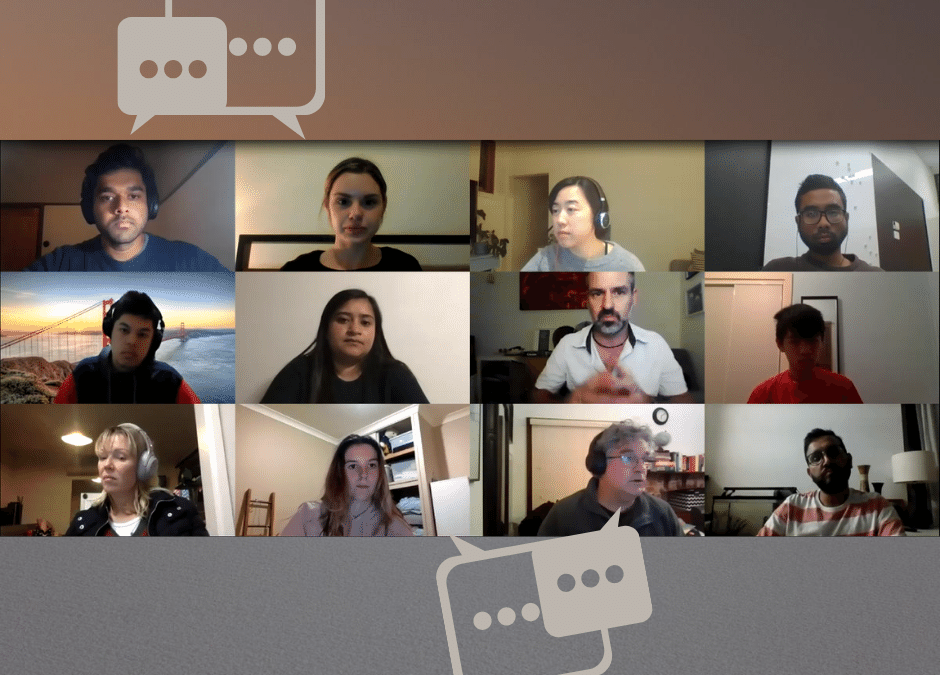Our first year of activating our mobilisation strategy has created more opportunities for volunteers and more support for communities.
- 53 volunteers mobilised
- 4 conceptual design projects completed (another 3 in progress)
- 800+ volunteer hours
The launch of EWB Australia’s mobilisation program was a significant milestone in the evolution of how we engage our volunteer network. The initiative of moving from a membership model to an active mobilisation model for volunteers aimed to ensure our programs and projects have access to skilled, knowledgeable and engaged volunteers who can support impact delivery. It also enables EWB to improve the scalability and effectiveness of our impact.
Importantly, after listening to our network, mobilisation aims to provide the foundation for our network to meaningfully engage and actively contribute to our programs and projects at local, national and international levels.
EWB has been busy establishing the program and testing a variety of mechanisms. The program is led by Shenuka Peiris, EWB’s Volunteer Mobilisation Coordinator, and supported by Danielle Kirby, EWB’s Volunteer National Mobilisation Facilitator, who has also recruited a volunteer coordinator in each state to support the growing suite of projects needing mobilisation support. The program was launched featuring three distinct streams:
- Open Challenges
- Project Initiation
- Technical Specialisation
Open Challenges
Open Challenges focus on a discrete part of a real-life engineering problem, allowing our network to engage in crowd-sourced ideation, creativity and innovation. The conceptual designs and ideas garnered assist the EWB Engineering team to view multiple perspectives and solutions, which can then be analysed and honed in a more detailed design phase. Due to the open nature of the briefs that underpin these challenges, the projects can be undertaken by volunteers from varying disciplines. They can also be delivered in different formats – from desktop-based or facilitated workshops to hack-a-thons or conceptual design development, providing a platform for rich ideation.
Project Snapshot: BirthWatch Graphical Design
The first project offered as an Open Challenge in May 2019 was the BirthWatch Graphical Design Challenge. Myanmar has the highest maternal mortality ratio in Southeast Asia and in rural Myanmar, half of all women rely on traditional birth attendants during pregnancy. The ability to reliably and accurately keep time during labour and postpartum has been identified as important in reducing the maternal mortality rate in these regions. EWB Australia’s Technology Development team is currently developing the BirthWatch to address this need. The Open Challenge asked our network to help support design of a graphical interface. Through this mechanism, seven unique design ideas were submitted that presented multiple perspectives and were considered in selecting the final design to proceed to the next phase of the project – detailed design.
Project Initiation
Project Initiation primarily concentrates on conceptual design – the first phase of a project. Each project galvanises a team, or multiple teams, to work together to respond to the criteria of a project brief, defined by EWB staff.
Project Snapshot: Washdown Station
Supporting EWB’s Engineering On Country program, this project involved the development of a conceptual design of a Vehicle Washdown Facility. This has been identified as a key challenge for the preservation of biodiversity on Country, and is needed to control the spread of weed by vehicles coming in from other areas. In all, 16 volunteers within the EWB Chapter network joined five teams to participate in the challenge, comprising 68% students, 21% young professionals and 11% mid-career professionals. The project is due for completion in September 2020.
Technical Specialisation
The Technical Specialisation mechanism is the next step after the Project Initiation phase. This mechanism requires individuals with specific technical knowledge to work solo or in teams. They work directly with the EWB Technology Development team, and contribute to the technology development aspects of a project.
Project Snapshot: Accessible Moto
The first project aims to engage technical specialists to support the next phase of the Accessible Moto project. A project team structure was identified, featuring four different design briefs, all feeding into the work being done by the EWB Technology Development team. With the team in place, the project kicks off in August 2020 and concludes in April 2021.
Initial learnings
As a new function within EWB, the establishment of the mobilisation mechanisms has been a steep learning curve. AgriLab projects were a great way to engage the skills and knowledge of the EWB technical network to support real-life community projects. The projects engaged volunteers from across the country, which was exciting. They created a strong collaborative environment within the volunteer teams, and allowed technical volunteers with a wide range of experience to work together.
The teams, comprising emerging and established engineers, made for a winning composition. Students have more available time to apply to projects to ensure the work is delivered, and professionals provide experienced insights and feedback. Both students and professionals engaged in valuable mentoring relationships, building the capacity of both cohorts.
Project Initiation as a mechanism was identified as the most suitable way to start a mobilisation project. It allows newly established remote volunteer teams to really understand a project and the community they are contributing to.
Finding the right balance of sufficiently engaging the EWB Engineering team and creating a supportive yet autonomous environment for the technical teams was also a key learning. The program was set up to operate in a remote and online working environment, but there will be opportunities to improve the systems and processes to provide a great online volunteer experience.
What’s next?
Moving forward, the mobilisation team will embrace these initial learnings and build more structure around the program to ensure mobilisation projects are strategically prioritised. The focus for the year ahead will be to continue to engage the EWB volunteer network to support EWB Engineering projects and provide support to EWB’s other country offices in Timor-Leste and Vanuatu. There will also be an increased focus to engage the EWB Chapter networks to continue to build the mobilisation mechanism and ensure volunteers are aware of these project opportunities.


